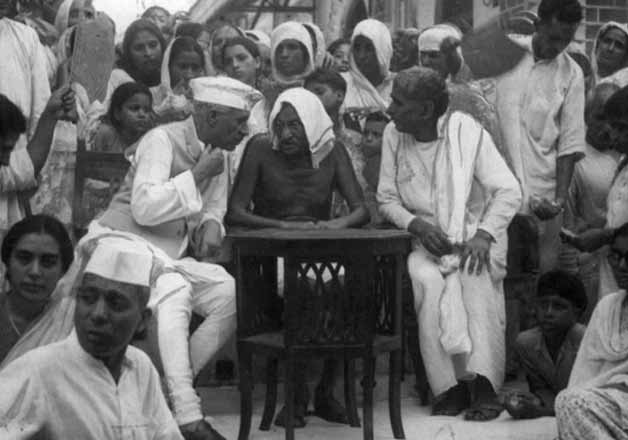
Taking a hard-line against the whimsical decision of the Nawab, Patel asked Pakistan to annul the accession and told the Nawab to reconsider his decision and merge the state with India. To make the message loud and clear, Patel combined diplomacy with force and under his instructions; the Indian army occupied three principalities of Junagadh.
Sensing support from Indian army, the people of Junagadh revolted and formed a civil government ( Aarzi Hukumat). Both Nawab and Bhutto fled to Pakistan and Indian army entered Junagadh under Patel's order.
Later on, a plebiscite was conducted and an overwhelming majority of 99.5 percent opted for merger with India.

Hyderabad's case was similar to that of Junagadh. At the time of independence, Hyderabad included parts of present-day Andhra Pradesh, Karnataka, and Maharashtra states. While more than 80 percent of population belonged to Hindu community, the Nizam Osman Ali Khan was a Muslim. He wanted either independence or accession to Pakistan.
Razakars, Muslim forces loyal to Nizam, under the leadership of Qasim Rizvi, started persecuting those who were in favour of accession to Indian state.
Sardar was in favour of military action to facilitate Hyderabad's merger with Indian state but the then Indian Prime Minister Jawahar Lal Nehru and Governor-General, Chakravarti Rajgopalachari were completely against the use of force because they apprehended Hindu-Muslim violence. Patel insisted that if Hyderabad was allowed to continue with its antics, the authority of the Indian government would be severely compromised and then neither Hindus nor Muslims would feel secure in its realm. Patel was determined and forcefully advocated the urgency for military action and finally succeeded in persuading them.















